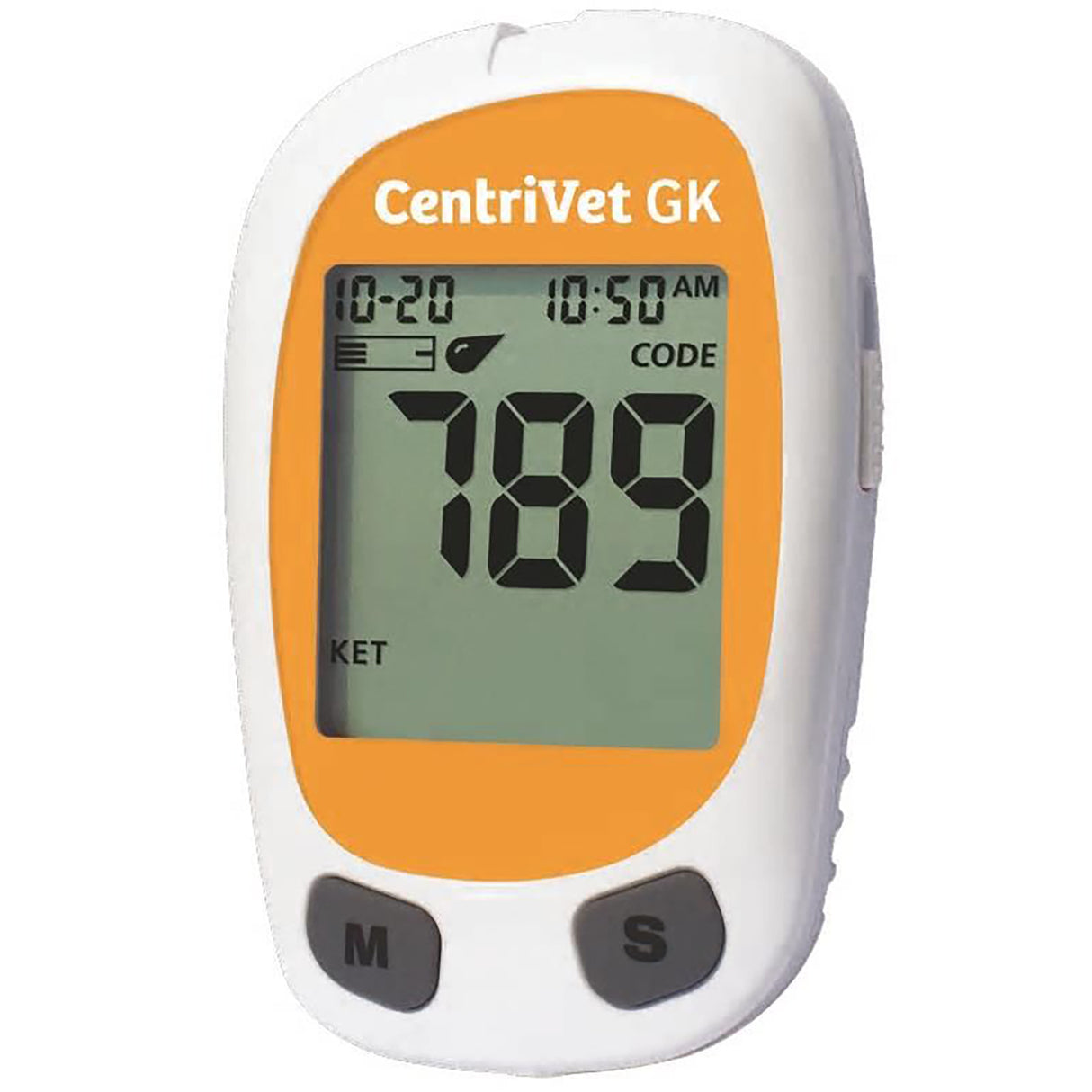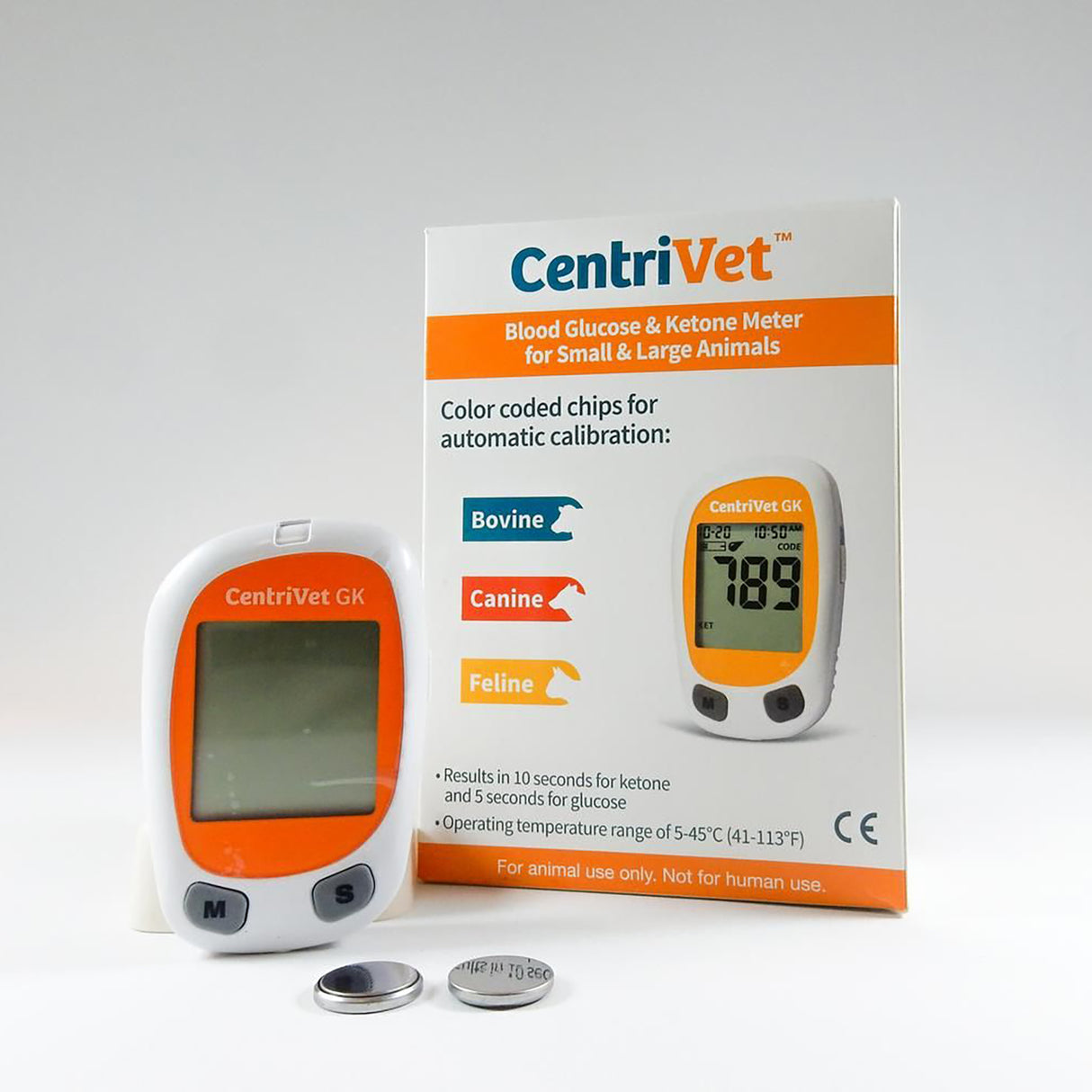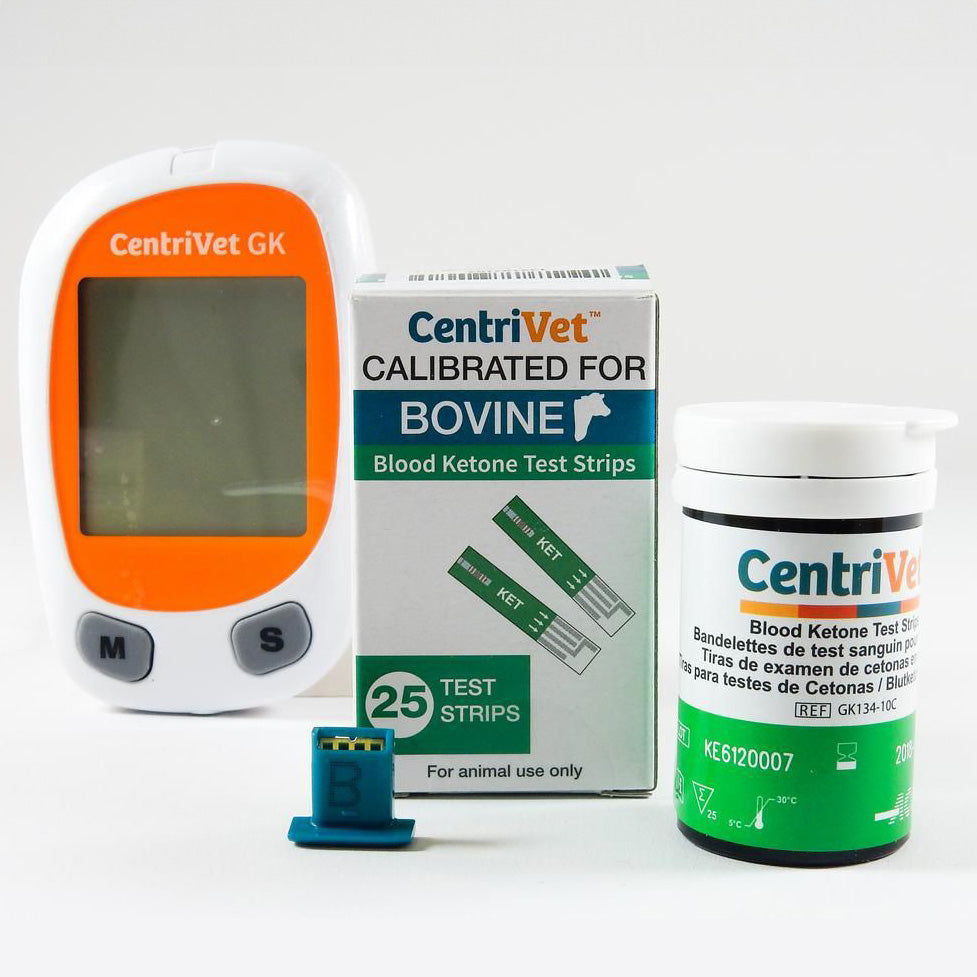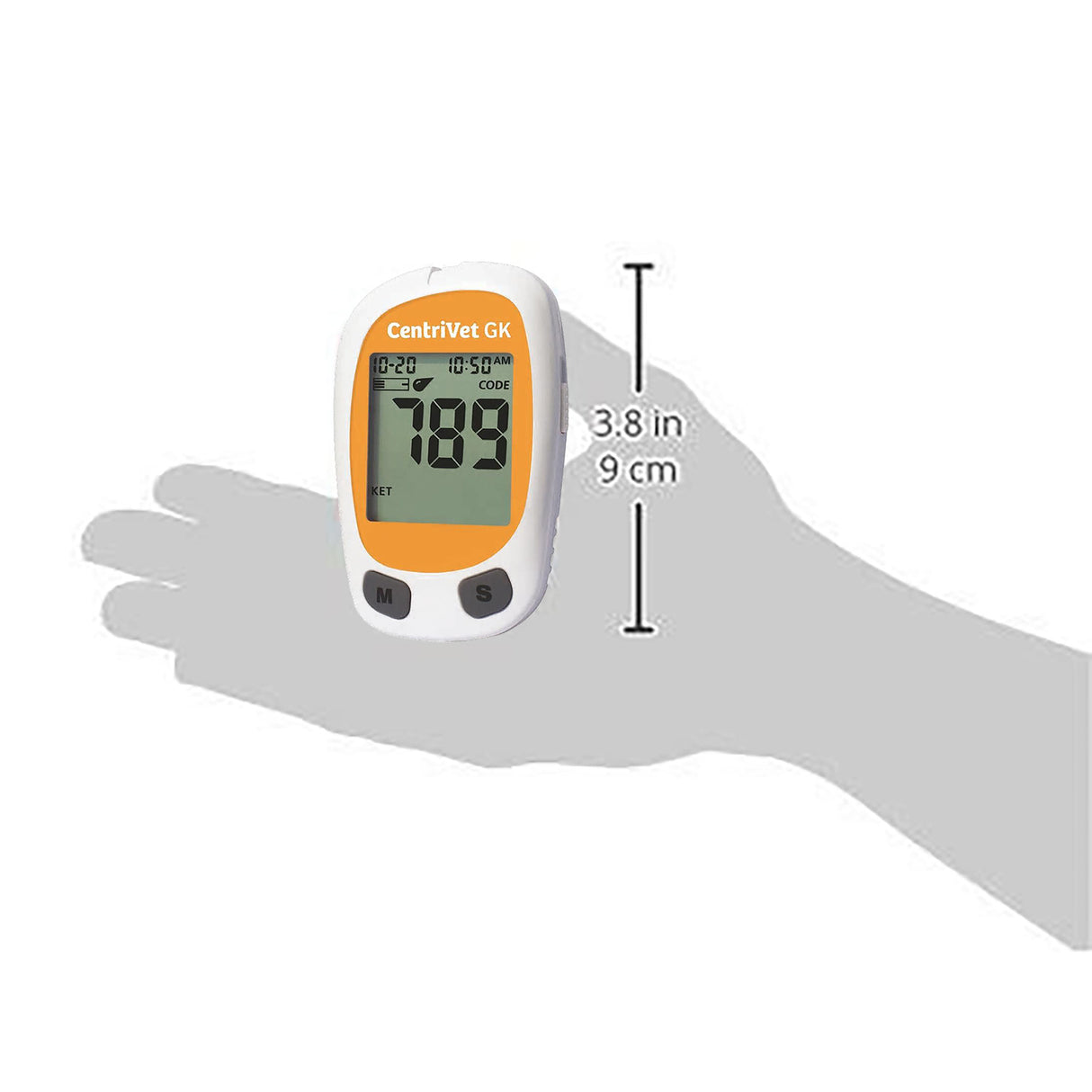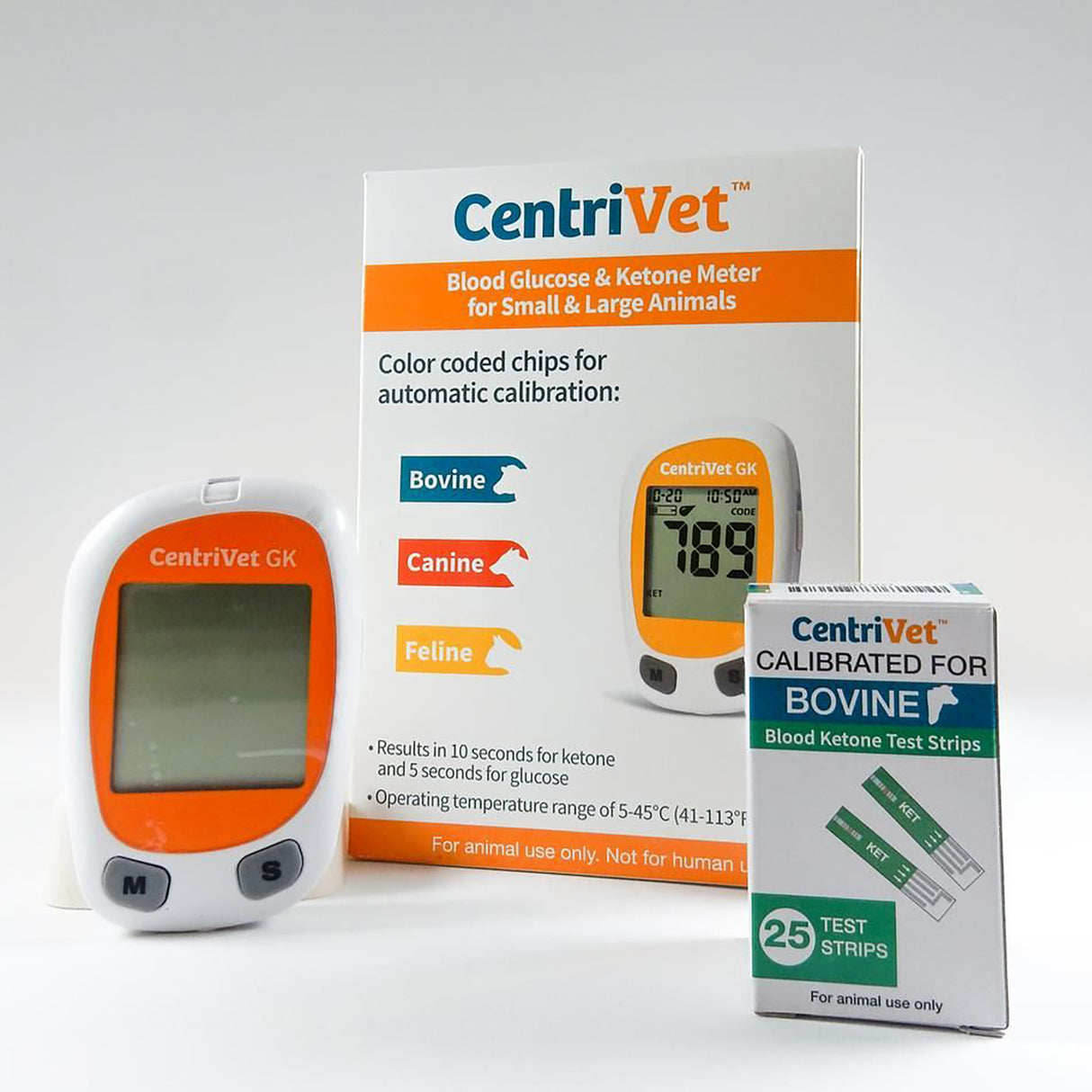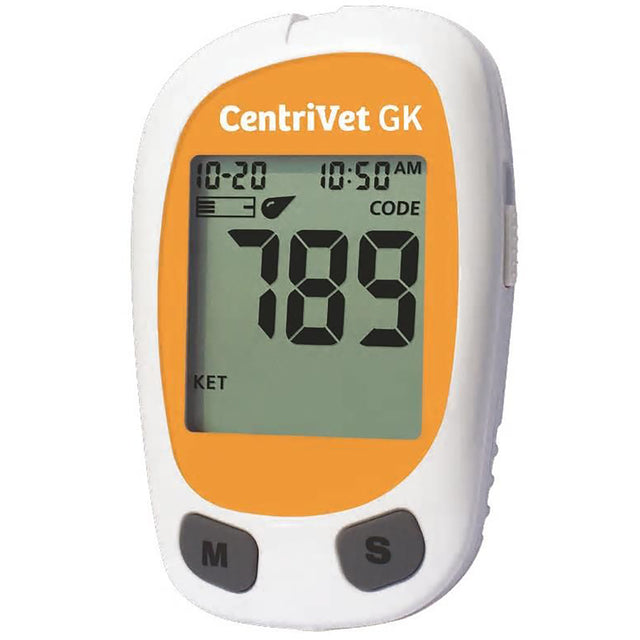CentriVet Glucose & Ketosis Tester Digital
Price (excluding VAT)
Description
Description
CentriVet Glucose & Ketosis Tester Digital
CentriVet blood glucose and ketone tester is a dual glucose and ketone meter, specially developed for animals. Unique technology ensures that you get accurate results for each animal in seconds.
- Small amount of blood needed 0.8 µL and 1.2 µL for glucose and ketones.
- 5 seconds for glucose results and 10 seconds for ketone results.
- Clinically proven accuracy
- Audible refill detection reduces lost test strips
Supplied without test strips 903081
Why test? Ketosis (milk fever) is a metabolic disease. One in nine Dutch dairy cows suffer from ketosis in the first months after calving, but there are large differences in the percentage of cows with ketosis per farm. The disease mainly occurs at the beginning of lactation as a result of a negative energy balance. Cause Ketosis occurs because cows consume too little feed directly after calving compared to the amount of milk produced, in other words: energy intake lags behind at the energy requirement. To cover this deficit, the cow breaks down its own body fat, a process in which ketones are formed. The body can process small amounts of these waste products, but at extreme energy shortages this is no longer possible and ketosis occurs. Symptoms Cows with ketosis become sluggish, have little appetite, do not take in enough concentrated feed, give less milk, have stiff manure and their condition decreases rapidly. The exhaled air of cows with ketosis smells of acetone (one of the ketones). Ketosis is often the result of another problem, such as mastitis, uterine inflammation, abomasum displacement, but also a claw disorder. These disorders have a negative effect on feed intake, causing cows to develop a negative energy balance more quickly. source: www.veearts.nl
Interpretation of the test:
- 0 - 1.4 mmol Normal value for a fresh cow
- 1.4 - 3.0 mmol Ketosis
- 3.0 - 6.5 mmol Severe ketosis
- 6.5 mmol Very severe ketosis
- 8.0 mmol Poor prognosis
Technical Support
Technical Support
at HappyFarmer we are ready with expert technical support for all your questions. Please contact us and experience our personal service. We are happy to help you!
Safe online payment
Safe online payment
Enjoy the convenience and security of paying with trusted methods like iDeal, Credit Card, Bancontact, Apple Pay, and Google Pay. Join at the thousands of satisfied customers who have paid quickly and securely!
Fast shipping
Fast shipping
Join at our satisfied customers and enjoy the conveniences of our fast courier service: within a few days you will have your product at home, just like many other happy farmers who chose efficiency!
-
BrandCentriVet
-
Article code
Safe & Trusted ordering
Payment methods
Your payment information is processed securely. We do not store credit card or bank details and do not have access to your credit card or bank information.
